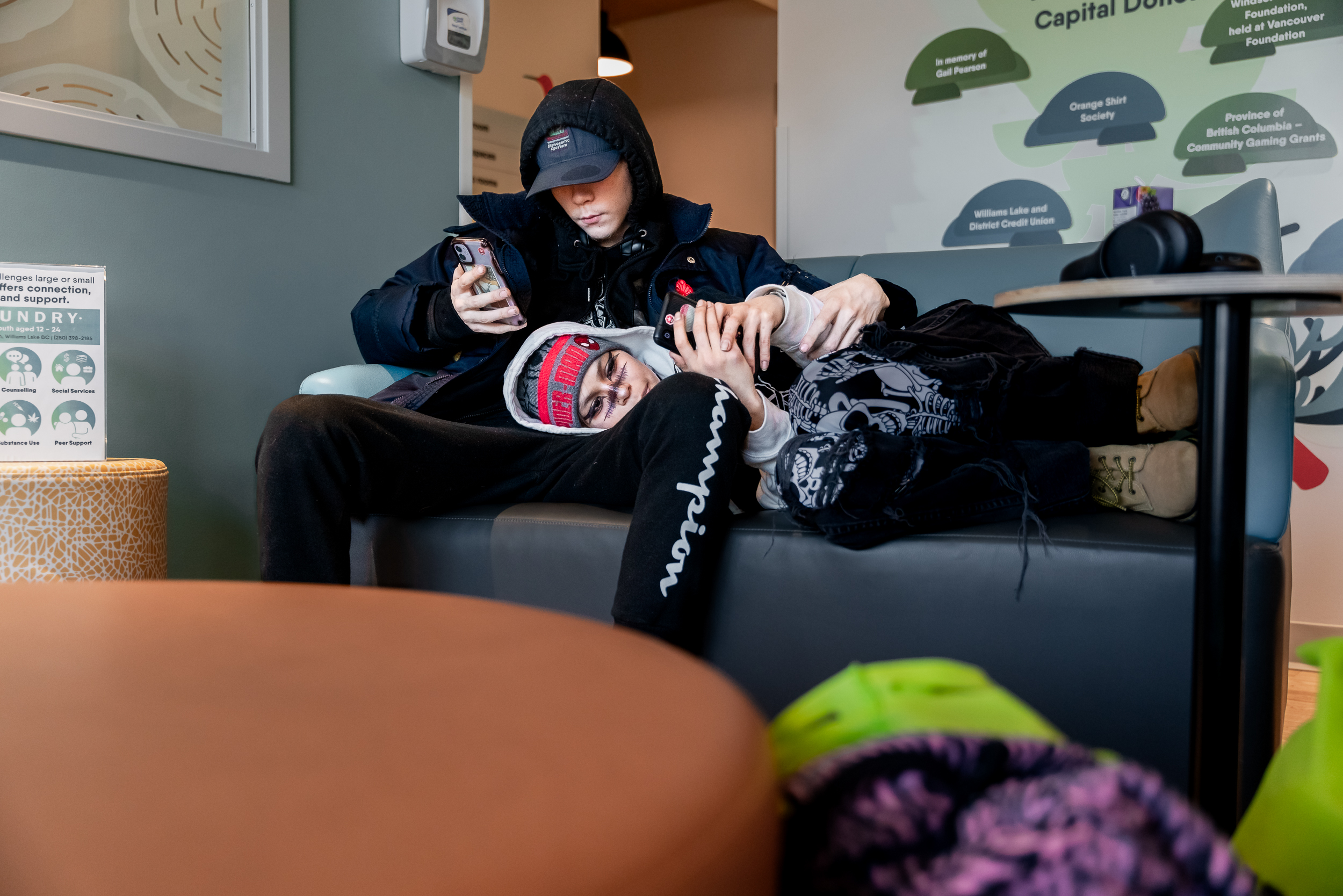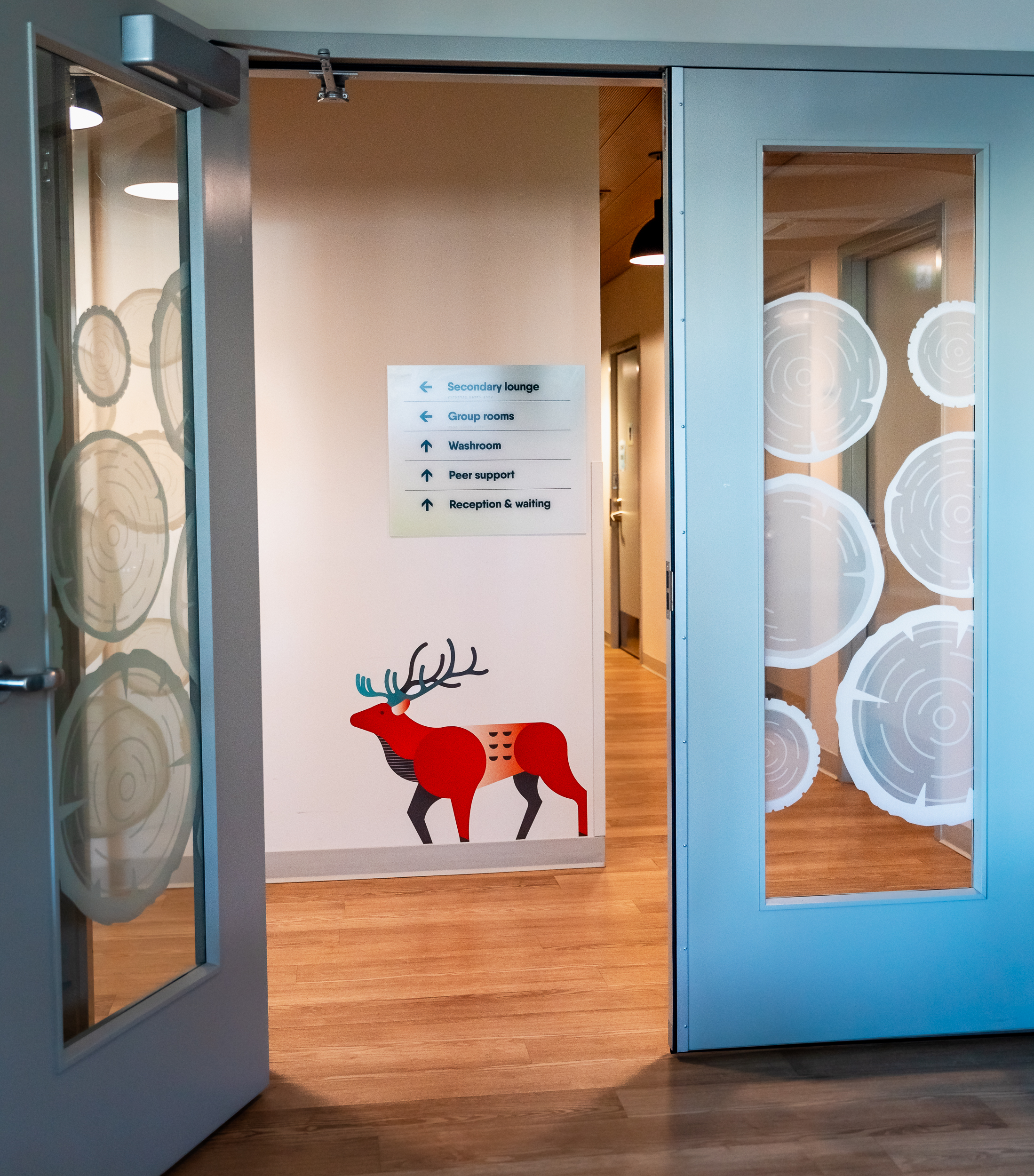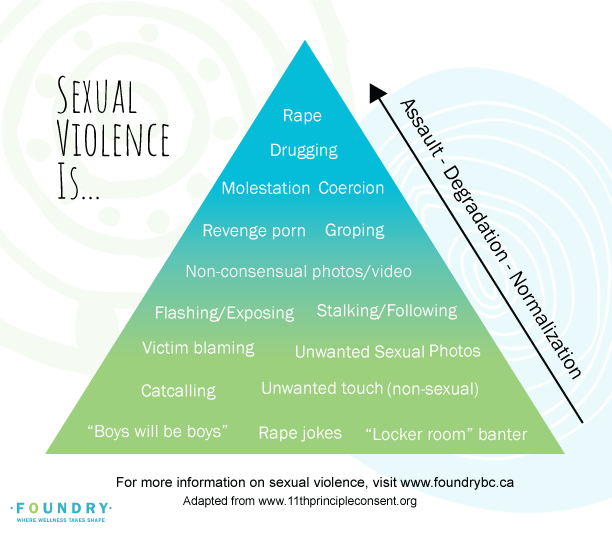Sexual assault is any unwanted sexual act done by one person to another. It can affect you in many ways and in different areas of your life. Remember, it is never your fault. Through this section, you can learn more about sexual assault and where you can turn to get help. Sexual assault is any sexual activity that happens without your consent. Consent is when you freely say or do something that communicates that you want to take part in a particular sexual activity.
No matter what someone says, you did not give consent if:
- Someone forced, pressured, or threatened you
- You were asleep or unconscious
- You were under the influence of alcohol or another substance
- You are a minor, and the person was in a position of trust, power, or authority
Sexual assault can include any form of unwanted sexual contact including:
- Sexual touching without consent
- Pressuring someone into having sex
- Forced kissing
- Forced sex
- Rape
Sexual assault can happen to anyone of any gender. Anyone can commit a sexual assault. Sexual assault is almost always committed by someone you already know – like a classmate, friend, teacher, coach, family member, acquaintance or someone you are dating. Sexual assault can also be committed by a stranger.
Being sexually assaulted is not your fault. This is true even if you:
- Flirted with the person who sexually assaulted you
- Used alcohol or other substances
- Consented to having sex with that person in the past
- Consented to some sexual activities (like kissing or making out)
- Changed your mind after you gave consent
It does not matter what you did (or did not do) before, during or after the assault. It is okay if you tried to get away or tried to make it stop. It is also okay if you just froze and did not fight back or say “no”. The only person at fault is the person who sexually assaulted you. It can be hard to tell whether or not you’ve experienced sexual assault. It can be even more difficult to decide whether or not to tell someone.
If you think you have experienced sexual assault, it is your decision what to do next. You may decide to get a forensic medical exam at a hospital, which can provide legal evidence about the assault. This exam should be done as soon as possible after the assault (up to 1 week after the assault). You can decide later if you would like to report the assault to the police. To find out where you can go for this medical exam, call VictimLinkBC or Sex Sense.
Deciding to tell someone and seek support is a brave first step. You are not alone.





